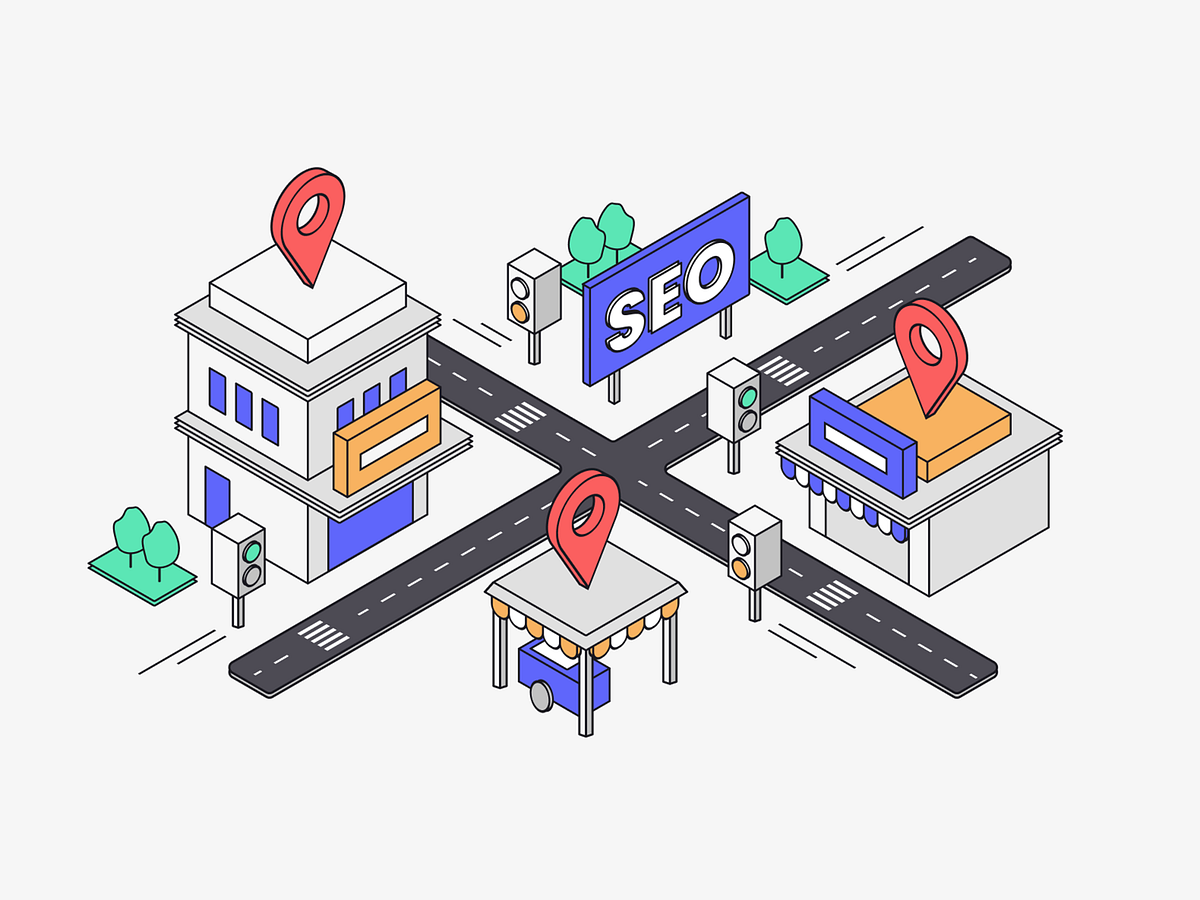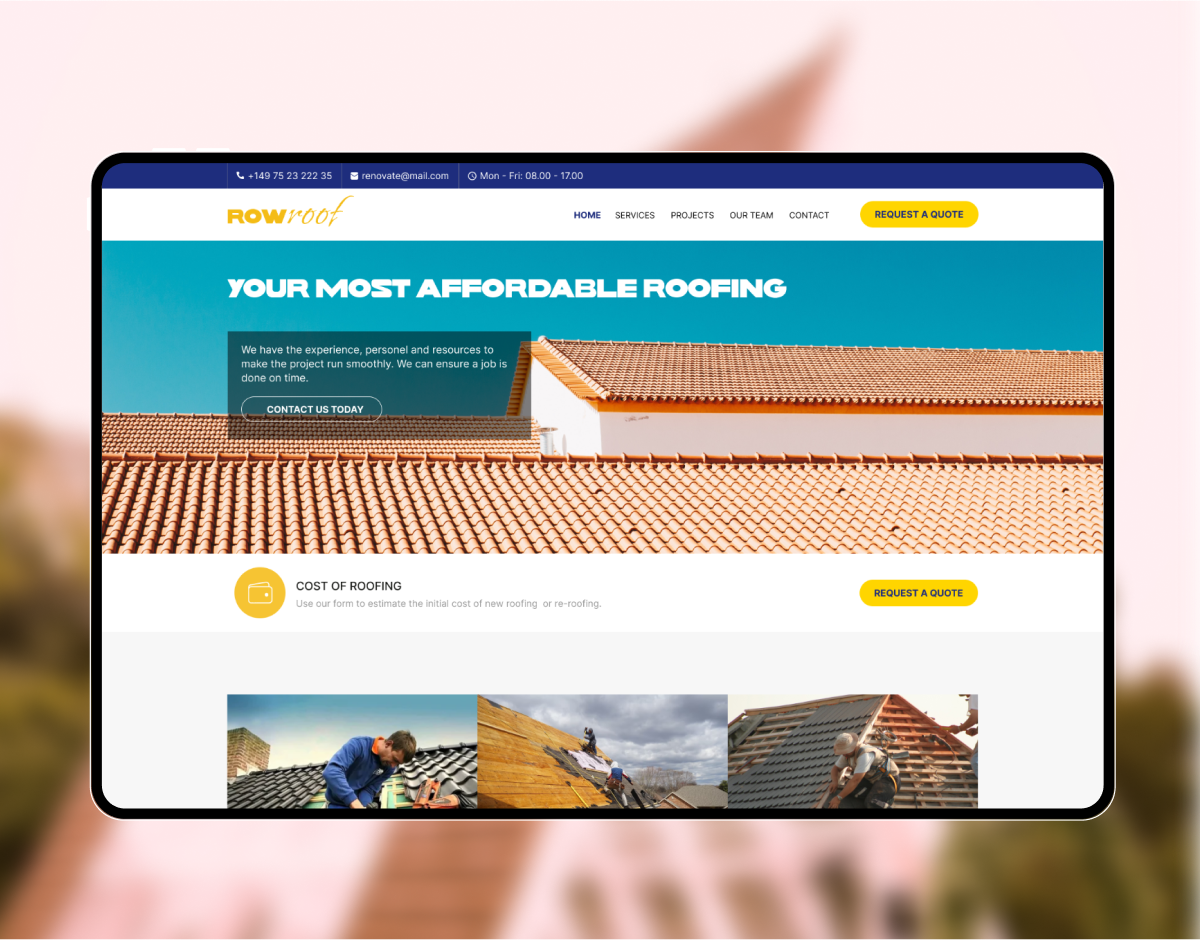In the digital age, the importance of having a website for small businesses cannot be overstated. Whether you're running a local bakery, a startup tech company, or a boutique clothing store, a strong online presence can significantly impact your success. In this comprehensive guide, we will explore why even smaller businesses need a well-designed website and how it can lead to growth, increased sales, and a substantial return on investment.
Enhancing Business Credibility
When a potential customer stumbles upon your business, whether through word of mouth or an online search, the first thing they're likely to do is look for your website. Having a professionally designed website is like having an inviting storefront in the digital world. It builds trust and credibility.

A well-designed website conveys that you are serious about your business. It showcases your products or services, provides contact information, and offers essential information about your company. In fact, studies show that 75% of consumers judge a company's credibility based on their website design.
Building Trust with a Professional Website
Your website is your digital business card. It's where you tell your story, highlight your expertise, and demonstrate your commitment to quality. A clean, user-friendly design instills confidence in potential customers.
Gaining a Competitive Edge
In today's competitive market, having a website is not just a bonus; it's a necessity. Your competitors are likely to have websites, and if you don't, you're missing out on a significant chunk of potential customers. Your website can set you apart, not only by offering valuable information but also by providing a seamless experience for users.
Let's take a closer look at why a website enhances your credibility and gains you a competitive edge:
| Comparison | Your Business Without a Website | Your Business With a Website |
|---|---|---|
| Credibility | Limited online presence may raise doubts | A professional website builds trust |
| Competitive Advantage | Lacks a digital storefront | Stands out in the digital landscape |
Expanding Reach and Visibility
Small businesses often rely on local customers, and that's where your website can make a significant difference. It extends your reach and visibility beyond your physical location.
Reaching a Wider Audience
With a website, your business is accessible to anyone with an internet connection. You can reach potential customers far beyond your local area. Your website acts as a 24/7 storefront, allowing people to learn about your business at their convenience.
Local SEO: Boosting Local Discoverability
Local search engine optimization (SEO) is a game-changer for small businesses. By optimizing your website for local search terms, you increase the chances of showing up in local search results. This means that when someone in your area searches for a product or service you offer, your website is more likely to appear.
Mobile Responsiveness and Accessibility
In an era where a significant portion of web traffic comes from mobile devices, it's crucial that your website is mobile-friendly. A mobile-responsive design ensures that your website looks and functions well on smartphones and tablets, further increasing your reach.
By reaching a wider audience, your website can help you:
| Comparison | Without a Website | With a Website |
|---|---|---|
| Audience Reach | Local customers only | Potential customers worldwide |
| Local Discoverability | Limited | Enhanced through local SEO |
| Mobile Accessibility | Not optimized for mobile | Mobile-responsive for a broader audience |
The Impact on Business Growth and ROI
In the previous section, we explored how a well-designed website enhances business credibility and expands reach. Now, let's dive into the profound impact a website can have on your business growth and return on investment (ROI).
Boosting Sales and Conversions
One of the most compelling reasons to have a website for your small business is the potential to boost sales and conversions. Your website is a powerful marketing tool that can convert visitors into customers.
Converting Website Visitors into Customers
Your website is like a salesperson that works 24/7, providing information and showcasing your products or services. It allows potential customers to learn about what you offer, browse your catalog, and make purchase decisions at their own pace. With effective calls to action and an easy-to-navigate layout, you can turn visitors into paying customers.
Measuring ROI from Your Website
To understand the impact of your website on business growth, it's essential to measure your return on investment (ROI). With tools like Google Analytics, you can track website traffic, visitor behavior, and conversion rates. This data provides valuable insights into how your website is performing and where you can make improvements.
Let's look at the impact of a website on sales and ROI:
| Comparison | Without a Website | With a Website |
|---|---|---|
| Sales Potential | Limited to physical location | Expands to online sales |
| Conversion Tracking | Limited data on customer behavior | Detailed insights for ROI optimization |
Cost-Effective Marketing Strategies
Marketing is a crucial aspect of business growth, but it can be expensive. Fortunately, a website offers cost-effective marketing opportunities that can benefit small businesses.
The Power of Content Marketing
Content marketing involves creating and sharing valuable content to attract and engage your target audience. This strategy not only helps you connect with potential customers but also positions your business as an industry expert. By consistently providing high-quality content, you can build a loyal customer base.

Leveraging User-Friendly Design for Conversion Rate Optimization
A user-friendly website design ensures that visitors can navigate your site effortlessly. It's a critical factor in conversion rate optimization (CRO). When your website is easy to use, it encourages visitors to take the desired actions, whether that's making a purchase, filling out a contact form, or subscribing to your newsletter.
Let's compare the marketing strategies with and without a website:
| Comparison | Without a Website | With a Website |
|---|---|---|
| Content Marketing | Limited reach | Expands reach and builds credibility |
| Conversion Rate Optimization | Difficult to implement | Enhanced through user-friendly design |
In the next section, we'll explore the options available for small businesses when it comes to web development.
Choosing the Right Web Development Solutions
In the previous sections, we've discussed the importance of having a website, its impact on credibility, reach, sales, and marketing. Now, let's explore the various web development solutions available to small businesses.
Options for Small Enterprises
As a small business owner, you have several options when it comes to web development. Each option has its pros and cons, and the choice depends on your specific needs and budget.
Affordable Web Development Choices
-
DIY Website Builders: There are user-friendly website builders like Wix, Weebly, and Squarespace that allow you to create a basic website with minimal technical knowledge. These are cost-effective but may have limitations in terms of customization.
-
Custom Web Development: Hiring a professional web developer or a web development agency to build a custom website tailored to your business needs. This offers complete flexibility and scalability but can be a more significant investment.
DIY vs. Professional Development
| Comparison | DIY Website | Professional Development |
|---|---|---|
| Cost | Affordable | Potentially higher initial investment |
| Customization | Limited templates | Complete customization |
| Scalability | Basic features | Scalable for future growth |
Ensuring a Mobile-Friendly Experience
In an era dominated by mobile devices, it's essential to ensure that your website is mobile-friendly. A mobile-responsive design guarantees that your site looks and functions well on smartphones and tablets.
The Significance of Responsive Design
Responsive web design adapts to the screen size and device, providing an optimal viewing experience. Google gives preference to mobile-responsive websites in search rankings, making this a crucial aspect of SEO.
The Growing Importance of Mobile Users
More than half of all web traffic comes from mobile devices. If your website isn't mobile-friendly, you risk losing potential customers who will quickly navigate away from a site that doesn't load correctly on their phones.
Let's compare the two options and explore the importance of mobile responsiveness:
| Comparison | Non-Responsive Website | Mobile-Responsive Website |
|---|---|---|
| User Experience | Poor on mobile devices | Excellent on all devices |
| SEO Ranking | Lower search rankings | Higher search rankings |
Content Strategy for Small Business Websites
As we've seen, having a website is vital for small businesses, and it's equally important to have a well-thought-out content strategy. Content plays a significant role in engaging your audience, building your brand, and improving your search engine ranking.
Crafting a Winning Content Plan
A successful content strategy begins with understanding your audience and their needs. Your content should aim to educate, entertain, or solve problems for your target customers. Here's how to create a content plan that works:
-
Audience Research: Know your audience's demographics, interests, and pain points. Create content that resonates with them.
-
Keyword Research: Identify relevant keywords and phrases related to your business and industry. These will be crucial for SEO.
-
Content Calendar: Plan your content in advance. Consistency is key. Regularly updated content is more likely to attract and retain visitors.
-
Variety: Diversify your content types. Consider blog posts, videos, infographics, and more to cater to different preferences.
-
Quality Over Quantity: It's better to have a few high-quality posts than many low-quality ones. Quality content is more likely to be shared and linked to.
The Role of Quality Content
Quality content is the backbone of your website. It informs, entertains, and engages your audience. It helps you establish authority in your niche and keeps visitors coming back for more.
Leveraging Localized Content for Small Businesses
For small businesses with a local presence, localized content is a game-changer. Creating content that's specific to your location, such as city guides, local news, or community events, can help you connect with your community and improve your local search rankings.
Incorporate the right content strategy to:
| Comparison | Without a Content Strategy | With a Content Strategy |
|---|---|---|
| Audience Engagement | Limited engagement | High engagement and trust |
| SEO Performance | Poor search rankings | Improved search rankings |
Local SEO: A Game Changer for Small Business Websites
In the digital landscape, local search engine optimization (SEO) can be a game-changer for small businesses. It's the practice of optimizing your online presence to attract more local customers and improve your rankings in local search results.

Dominating Local Search Results
When potential customers are searching for products or services, they often include location-specific keywords in their queries. For example, "best bakery in Delhi" or "web design agency near me." Local SEO ensures that your website appears in these search results.
The Power of Local Keywords
Local keywords, like city names, neighborhoods, and regional phrases, play a significant role in local SEO. By strategically incorporating these keywords into your content, meta tags, and headings, you can improve your chances of ranking in local search results.
Claiming and Optimizing Google My Business Listing
Google My Business is a free tool that allows you to manage how your business appears on Google Search and Google Maps. Claiming and optimizing your Google My Business listing is a crucial step in local SEO. It provides essential information about your business, such as your address, phone number, hours of operation, and customer reviews.
With local SEO, you can:
| Comparison | Without Local SEO | With Local SEO |
|---|---|---|
| Local Discoverability | Limited | Enhanced through local search rankings |
| Google My Business Presence | Not optimized | Optimized listing for better visibility |
Conclusion
In this comprehensive guide, we've explored the significance of having a website for small businesses. From enhancing credibility and expanding reach to boosting sales, we've seen how a website can lead to growth and a significant return on investment. We've also discussed web development options, the importance of mobile responsiveness, content strategy, and the impact of local SEO.
As a small business owner, investing in a well-designed website and implementing effective digital marketing strategies can be a game-changer. Your website is your digital storefront, and it has the potential to bring in new customers, build trust, and drive growth.
Now that you have a deeper understanding of the importance of a website for small businesses, you're well-equipped to take the next steps in enhancing your online presence. Whether you're starting from scratch or looking to improve your existing website, the benefits are clear.
If you're ready to embark on the journey of creating or optimizing your website, don't hesitate to contact Singh Web Design for expert guidance and professional web development services.

